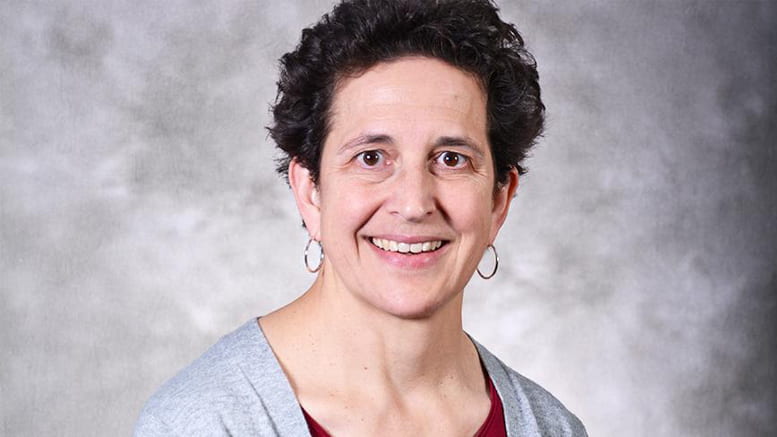Professor Katherine Freeman, the 2020 Nemmers Prize in Earth Sciences recipient, is participating in the spring Seminar series presented by the Department of Earth and Planetary Sciences.
Freeman holds the Evan Pugh University Professorship at Penn State University, and has a long history with Northwestern, having collaborated with a number of faculty and students over the years.
The Department of Earth and Planetary Sciences spring seminars were designed in collaboration with Freeman. As part of that series, on June 7, Freeman will give a lecture that is open to the public titled “Fingerprints of Life.” Freeman will share recent highlights related to studies of isotopes in molecules, sometimes called isotopologues.
“Life leaves traces of organic molecules in the geological record, known as biomarkers. These molecules can carry isotopes that reflect how they were made, from which we can learn about past climates and environments,” explained Freeman.
During the lecture, she will also share new tools that can explore isotopes at specific positions within molecules, and how they might reflect its origins in space or from biochemistry on Earth.
Meet Professor Katherine Freeman
Where are you from? Where did you study?
I was raised in Potomac, Maryland, which is near Washington DC. I am a graduate of Wellesley College in Massachusetts. I earned my masters and doctorate degrees from Indiana University in Bloomington.
What inspired you to pursue your area of study?
This is a true story from my first year as an undergraduate student: a good friend recommended an introductory geology course that she had just completed. Personally, she did not care at all for the topic, but she thought I might really like it. Well, she was right!
So, I majored in geology, and along the way, I took a lot of chemistry classes as well. This turned out to be great preparation for my subsequent graduate studies in geochemistry.
Please describe your research.
I had the good fortune to be involved in research as an undergraduate with Tom Hoering, who was one of the early leaders in the new science of using stable isotopes to follow life processes in the natural world. When I was considering where to go for graduate school, Tom helped connect me with John Hayes at Indiana University.
With John’s vision and guidance, I joined a research team that developed methods to quantify the abundance of carbon isotopes contained in individual organic molecules. This method is used today for many diverse applications, including crime forensics and drug testing, nutrition and biochemistry, energy research, ecology and environmental studies, archaeology, and in geology. In my work, I use molecules and isotopes to address questions about the carbon cycle, ancient life, and past climates.
What are you working on right now that excites you the most?
I recently became enchanted with the idea of measuring isotope abundances at specific positions within a molecule structure. This can shed light on the origins of individual atoms or chemical functional groups. I am currently directing a center at Penn State that focuses on these measurements and their application. Our center includes the world’s leading experts with these new methods, and we are working together to improve the tools for wider use. The group is also actively advancing this novel source of information in the study of ancient and modern life signatures on Earth, and to understand the origins of life’s chemical building blocks using organic compounds from meteorites and asteroids in our solar system.
How do you enjoy spending your free time?
I love spending time with my family, including my husband and two adult children. We enjoy traveling together and sharing outdoor adventures when we can. We also love to gather around a cozy fire on a winter’s evening to read or do puzzles. I am also an avid swimmer and a fairly mediocre gardener, although I enjoy it.
What is most fulfilling to you about teaching?
The best thing about teaching is that you also get to learn too! When students ask questions from their own unique perspectives, it opens new insights for all of us to consider. By welcoming diverse questions and ideas, I try to empower my students for a lifetime of learning.
What do you enjoy most about your collaboration with Northwestern University?
The faculty, staff, and students at Northwestern have generously and graciously welcomed me. I also have friends and family in the Chicago region, so that has made my stay even more special.
The department invited some of my favorite scientists to visit and speak in a seminar this quarter. This speaker series was organized by Professor Maggie Osburn, and I have delighted in the great discussions with the speakers, students, and other participants.

